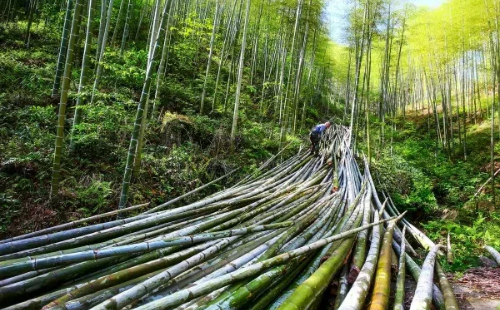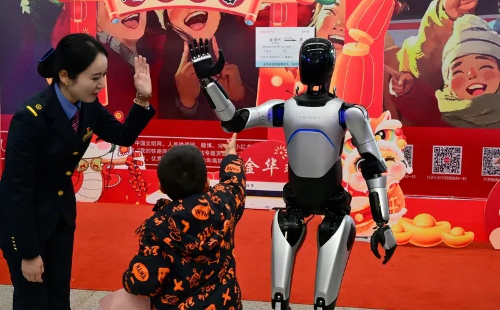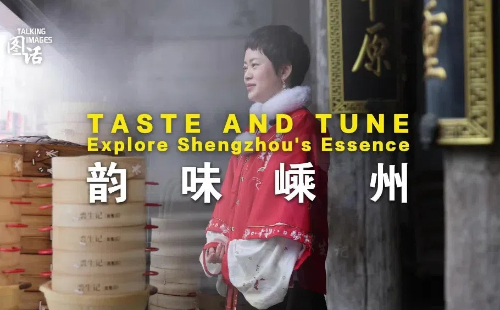China pushes for bamboo to replace plastics
As an Anji local, Bai is well-acquainted with the long-standing role of bamboo in daily life. "When I was young, bamboo-woven baskets and chairs were quite common," she recalled. "However, bamboo-based materials used to be prone to mildew in humid environments."
Thanks to improved processing techniques, bamboo products have become more durable and resistant to these limitations, said Bai.
For example, through high-temperature carbonization, bamboo is transformed into charcoal, which is then used to produce mold-resistant bamboo charcoal chairs and chopsticks. Fallen bamboo shoot shells, once discarded in the forest, are now pressed into food trays or plates for use in food delivery and camping.
Tang said, "The initiative of using bamboo to substitute plastic was proposed in 2022, but the shift from wood, metal and plastics to bamboo has been a long journey in Anji."
Bamboo's advantages lie not only in its resilience and strength but also in its fast growth and renewable capacity. Compared to wood, which can take over a decade to grow, bamboo matures in just four to six years, enabling multiple harvests without the need for replanting.
"Adequate cutting is beneficial to the bamboo ecosystem," Tang said. "If bamboo isn't harvested, it becomes vulnerable to diseases and pests. Moreover, if it blossoms it is unable to regrow. Overgrown bamboo can fall, and dry bamboo can pose a fire risk to the forests."
In Anji, the industrial development of bamboo benefits local communities as well. Villagers earn income from harvesting bamboo, and bamboo's strong carbon sequestration capacity provides additional revenue through carbon credit exchanges, according to Tang.
Bamboo has become a cornerstone of Anji's economy, with around 1,000 enterprises engaged in the industry.
The county has been implementing the philosophy of "Lucid waters and lush mountains are invaluable assets", which was proposed by President Xi Jinping in Anji 20 years ago when he was then secretary of the Communist Party of China Zhejiang Provincial Committee.
In 2023, Anji's bamboo industry generated approximately 18 billion yuan ($2.46 billion) in revenue.
Liang Fenghui, general manager of Zhejiang Fenghui Bamboo and Wood Co, based in Anji, said the company earned 130 million yuan in revenue in 2023 by selling bamboo-based products both domestically and internationally, including to Europe, Japan, the United States and Southeast Asia. Exports account for about 80 percent of the company's total revenue, he said.
Founded in the 1990s by Liang's father, the company focuses on manufacturing environmentally friendly bamboo products. "We specialize in consumables, packaging and lamps, with the majority of our materials sourced from bamboo," Liang said.
Bamboo consumables, including single-use knives, forks and toothbrushes, are designed for replacement within three months, aligning with efforts to reduce plastic usage. Some items, like bamboo sticks, are now produced automatically by machines.
At the company's factory, workers assemble bamboo lamps, which will be exported to European markets. "We have replaced plastic components in our lamps with bamboo as well," Liang added. The company is also enhancing value by incorporating cultural elements into the design of its packaging.





 play
play